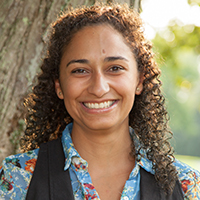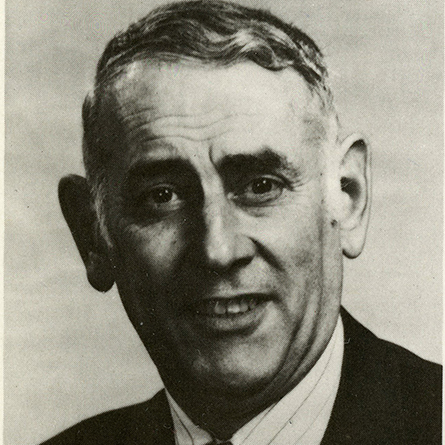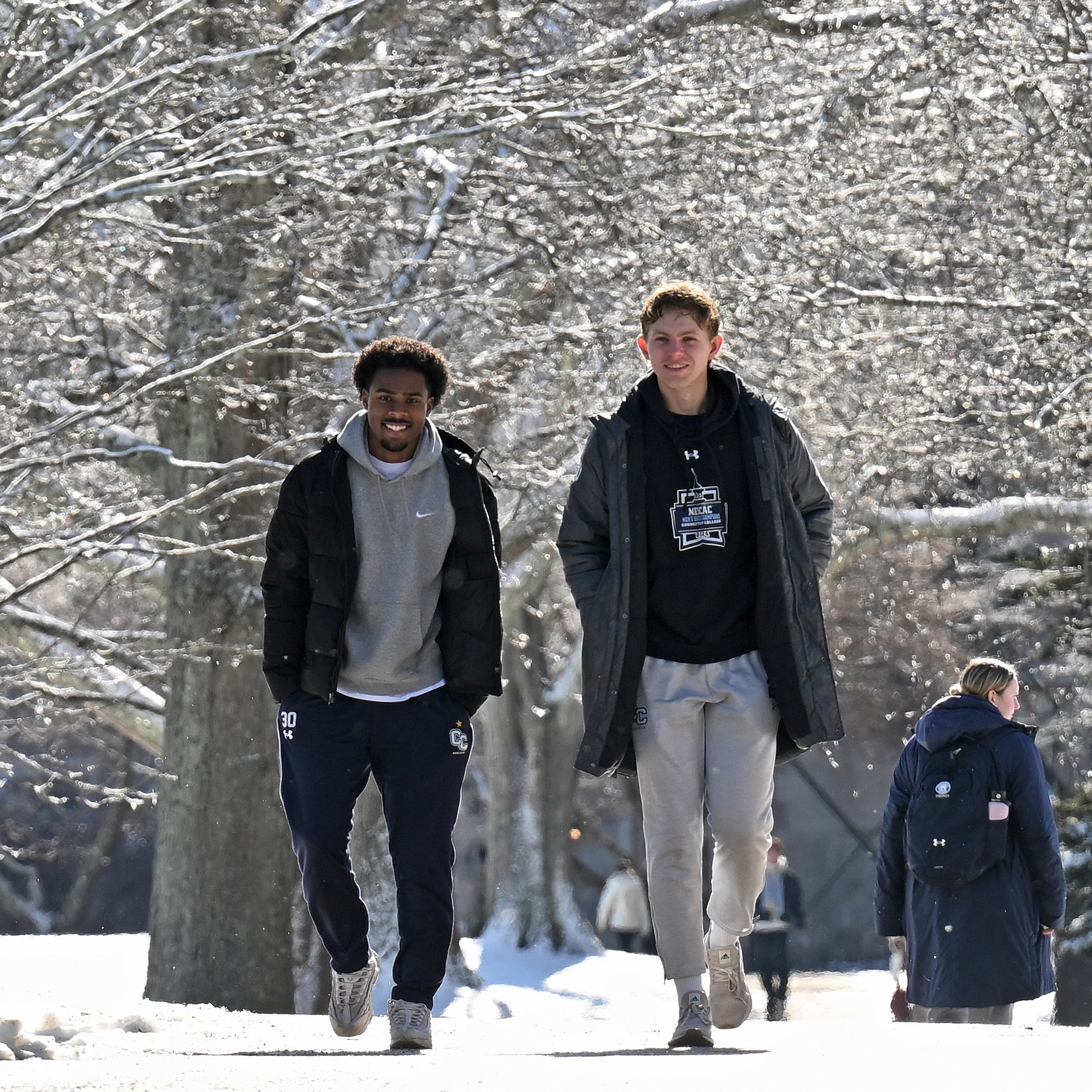
Trustee Emerita Linda Lear ’62 honors former professor Richard Lowitt with endowed fellowship
Connecticut College received a generous gift of $120,000 from Trustee Emerita Linda Lear ’62, establishing an endowed student research and travel fellowship in honor of former Connecticut College history professor Richard Lowitt, who passed away in June 2018 at age 96.
The Richard Lowitt-Linda Lear Fellowship for Primary Research in History will support research collaboration for two faculty members in the history department and two honors or independent studies students in history each summer. The application process will be announced in spring 2019, and the fellowship will be awarded later in the semester.
“We are enormously grateful to Dr. Lear for establishing this prestigious fellowship to encourage young scholars majoring in history,” said Leo J. Garofalo, associate professor and chair of the history department. “It provides undergraduates with unique opportunities to travel to special collections and archives to conduct original research. This opportunity early in a student’s career honors the close collaborative work that Linda undertook as an undergraduate history major with Professor Lowitt at Connecticut College. The department is thrilled to continue this tradition.”
Renowned for his research on the political history of the American West in the 20th century, Richard Lowitt taught at Connecticut College from 1953 to 1966, the longest tenure in his distinguished career, which included professorships at Florida State University, University of Kentucky, Iowa State University and the University of Oklahoma. He frequently served as departmental chair, directed countless dissertations and enthusiastically followed the careers of his graduate students.
A passionate biographer, Lowitt wrote the definitive biography of Senator George W. Norris of Nebraska, George W. Norris: The Persistence of a Progressive, 1913-1933 (1963), followed by biographies of Senator Bronson Cutting of New Mexico and Senator Fred Harris of Oklahoma, as well as other monographs and articles. At every opportunity, Lowitt immersed himself in the political history of the geographic area in which he found himself and encouraged his students to do likewise.
“Professor Lowitt brought new approaches to the study of the history of the American West,” said Catherine McNicol Stock, Barbara Zaccheo Kohn ’72 Professor of History and coordinator of the new Peace and Conflict Pathway in the Connections program. “Today, we often think of states like Nebraska as longtime conservative parts of the country, but Lowitt’s biography of Norris, still one of the most highly respected in the field, reminds us of the equally strong progressive and anti-militarist tradition of this region in the first half of the 20th century.”
Lowitt took a break from biography to return to pure political history in 1984, chronicling the ways in which Franklin Roosevelt’s New Deal refashioned the West at the very moment of its deepest environmental and economic crisis. The New Deal and the West was a work of far-reaching influence in the field of U.S. political history and, said Stock, “it led directly to some of the best-known scholarship in the field today.” It was also an important harbinger of the new field of environmental history.
In establishing the fellowship, Lear wished to honor her mentor, who encouraged her first political biography as an honors thesis, leading to a graduate thesis at Columbia University, a doctoral dissertation on political history and a career in environmental history. “Professor Lowitt inspired a passion for biography that became my life’s work. This fellowship recognizes the enormous influence he had on so many students like me and the high level of faculty-student collaboration he nourished throughout his career.”
“When I first ventured out to a public archive to do research after Conn College, women were not welcome in many archives, and women without graduate degrees even less so. Lowitt taught me to persevere, to challenge the system and to dare to be taken seriously a scholar. This fellowship honors our mutual partnership in historical research and in faculty-student mentoring.” Richard Lowitt and Linda Lear remained lifelong friends.
Lear is the author of a biography of the environmental champion Rachel Carson, Rachel Carson: Witness for Nature (1996). She wrote the introduction to the 50th anniversary edition of Carson’s Silent Spring and edited an anthology of Carson’s unpublished writing, Lost Woods: The Discovered Writing of Rachel Carson (1998). She has appeared in several PBS films on Carson’s life and edits rachelcarson.org. Lear’s most recent award-winning biography, of the artist, scientist and beloved children’s writer Beatrix Potter, is titled Beatrix Potter: A Life in Nature (2008).
A former Connecticut College trustee, Lear received in 2013 the Connecticut College Medal, the highest honor bestowed by the College. In 2008, she established The Linda Lear Center for Special Collections and Archives, and endowed The Linda Lear Reading Room in the Charles E. Shain Library.

